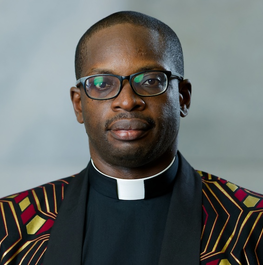Rev. Fr. Dr. Julian Chukwuemeka Ibe
Lecturer at the Pope John Paul II School of Evangelization, Zaria, Nigeria
Rev. Julian C. Ibe is a priest of the Catholic Diocese of Zaria, Nigeria. He studied Philosophy in St Thomas Aquinas Major Seminary, Makurdi and Theology in Good Shepherd Major Seminary, Kaduna. He was ordained a priest in 2009. Having served in various capacities within and outside Zaria, including being on the formation team of Good Shepherd Major Seminary, Kaduna as Spiritual Director, he proceeded to the Catholic Institute of West Africa, Port Harcourt where, between 2015 and 2021, he obtained a Masters, Licentiate, and Doctorate in Dogmatic-Systematic Theology, with a special focus on Ecological Concerns. He has a profound love for the environment and sees a nexus between love for nature and love for culture, an idea which he emphasises in his doctoral thesis. As an indigene of Southeast Nigeria who has schooled, lived and worked in different parts of Nigeria, he has come in contact with various religions and cultures and this has shaped his mind towards interreligious and intercultural dialogue.
Rev. Ibe is currently a lecturer in the Albertine Institute of Philosophy, Fayit, the Good Shepherd Major Seminary, Kaduna, and the Pope John Paul II School of Evangelization, Zaria. He is actively involved in the formation of young minds for the Catholic priesthood. He is also the Director of the Seat of Wisdom Academy, Zaria, a co-educational institution created to provide quality education for children of different faiths within Zaria. He is a voracious reader and is the author of numerous articles in local and international journals on diverse topics: ecology, theology, interreligious dialogue, marriage, etc. He is a member of the Nigerian Association for the Study of Religions (NASR), a multi-religious group geared towards the study and promotion of peaceful coexistence between different religions in Nigeria. He sees the preservation of nature and indigenous cultures as a meeting point between various religions. For him, interreligious harmony is a possibility, and ecological dialogue is a good starting point.
